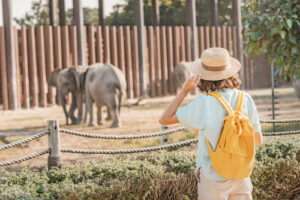
U.S. Rep. Andrew Garbarino (R-NY) sponsored a bipartisan bill that would support rescue, rehabilitation, reintroduction, and conservation efforts by zoos and aquariums.
The Wildlife Rescue, Rehabilitation, and Reintroduction Act of 2024, H.R. 7999, which Rep. Garbarino introduced on April 15 with lead cosponsor U.S. Rep. Mike Quigley (D-IL), would direct the Secretary of the Interior to incentivize rescue, rehabilitation, and appropriate reintroduction of threatened and endangered animals by establishing a Wildlife Confiscations Network, according to the bill’s text.
“Zoos and aquariums play a pivotal role in the conservation of threatened and endangered species, especially as instances of wildlife trafficking continue to rise,” said Rep. Garbarino, who along with Rep. Quigley co-chairs the House Zoo and Aquarium Caucus.
H.R. 7999 “would ensure qualified facilities have the resources and tools they need to effectively perform this important work,” Rep. Garbarino said.
The Rescue and Recovery Grant Program established under H.R. 7999 would support rescue, rehabilitation, and confiscations-related work, including expenses related to facility costs, food, veterinary care, direct animal care staff, transportation costs, reintroduction efforts, and developing networks of facilities qualified to conduct these activities, among others, according to a bill summary provided by the lawmakers.
Among other provisions, the bill also would codify all aspects of the Wildlife Confiscations Network, which would act as a single point of contact for federal wildlife law enforcement, the summary says.
“This legislation will help support their vital work and ensure that in the event of a wildlife emergency, there is a network in place ready to step up and care for animals in distress,” said Rep. Quigley. “I look forward to working with my colleague across the aisle in advancing this critical legislation.”
The bill is supported by the Animal Wellness Foundation, the Center for a Humane Economy, the National Audubon Society, and several zoos and aquariums around the country, among others.



